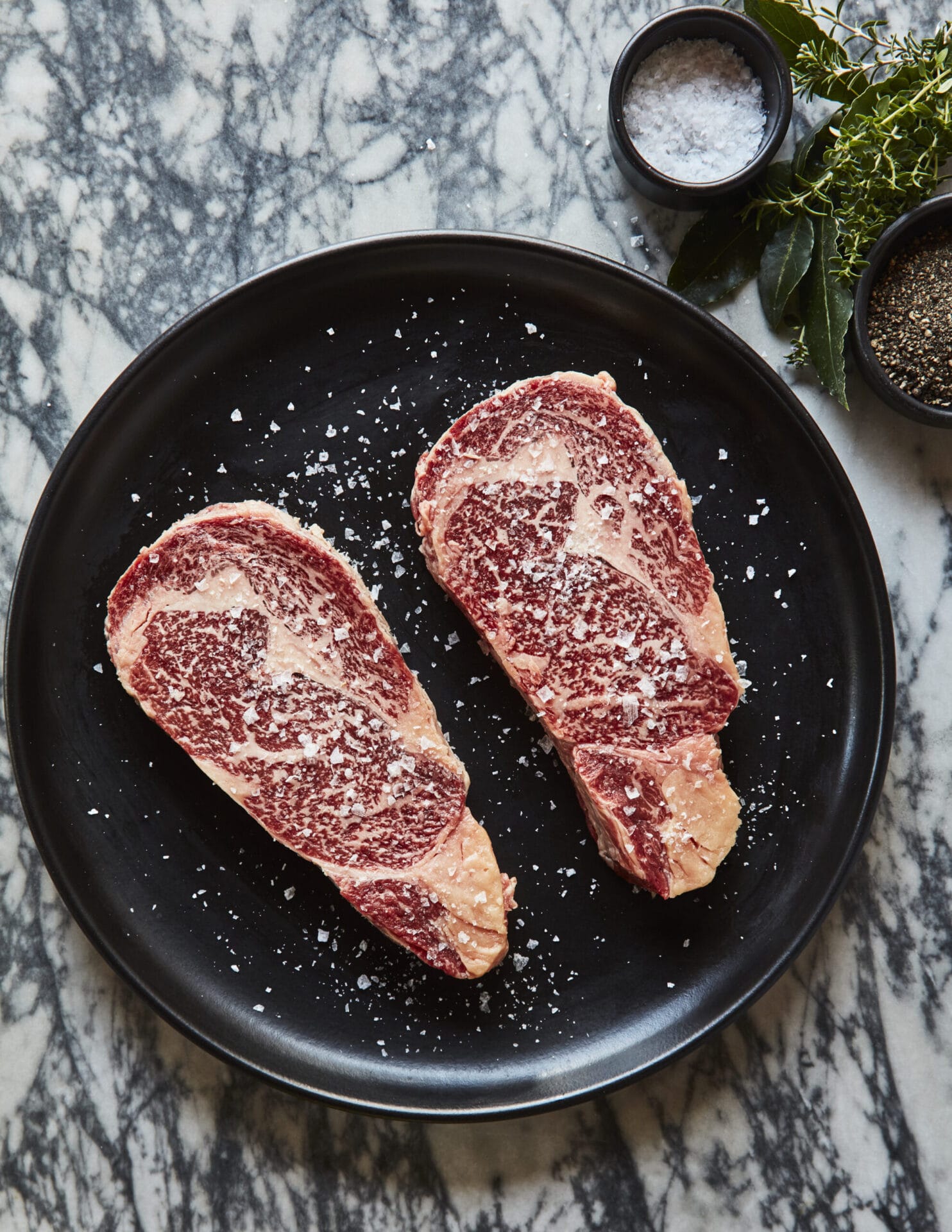-
Shop
-
Learn More
-
About
-
Contact
The First Light Wagyu Producer Group is a band of pioneers. They did the unthinkable and took Wagyu cattle out of their pens and raised them on grass. It hasn’t been easy, but being a pioneer never is. The result of all their hard work is the most extraordinarily tender, marbled grass-fed beef, which beef experts all over the world are describing as the best grass-fed beef in the world.

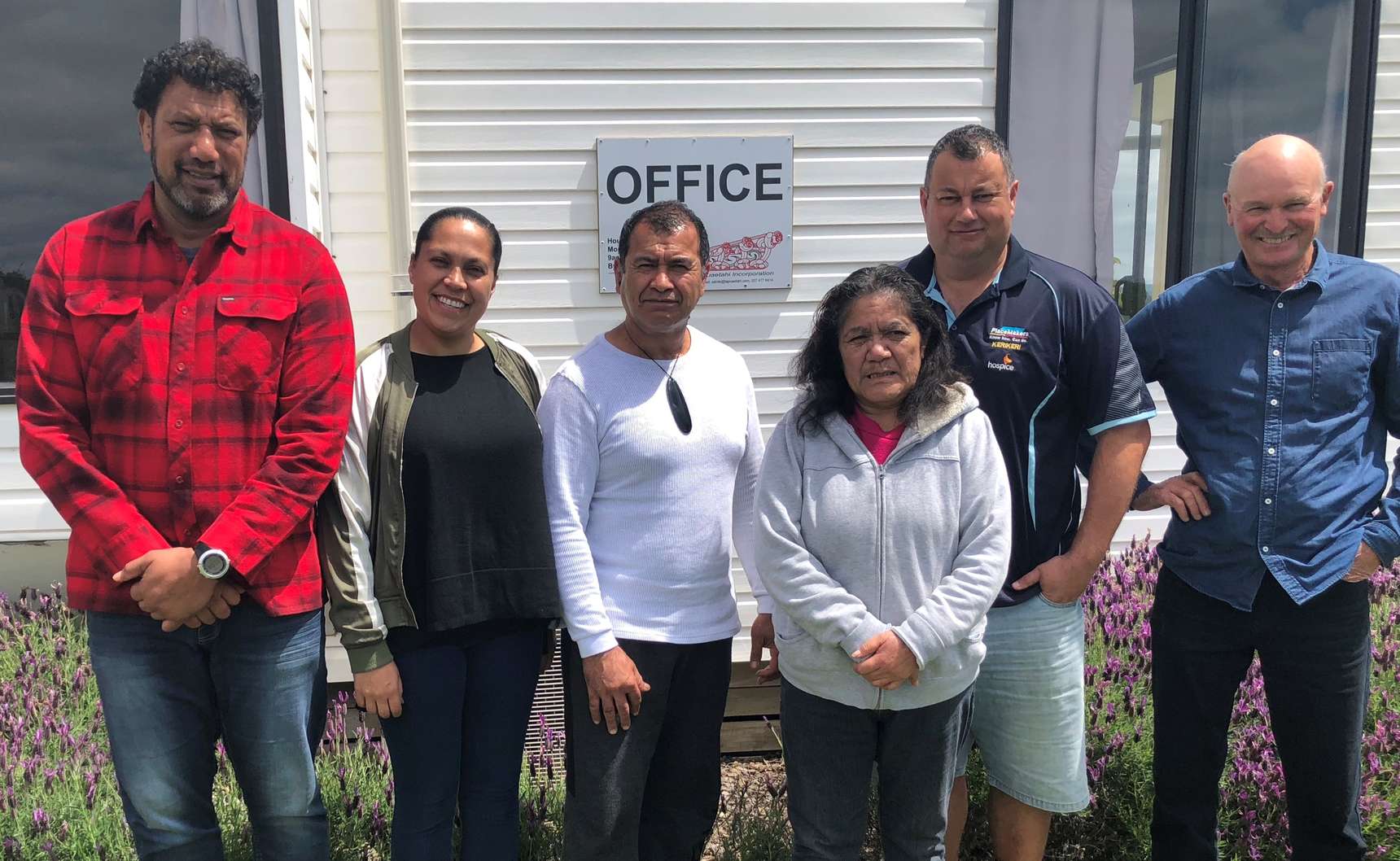
Tapuaetahi Incorporation, a kaupapa Maori entity, is a coastal block set in the beautiful Bay of Islands. Tapuaetahi has 365 shareholders that are served by a Committee of Management of six.
Breeding Angus for around 50 years, they started their journey with First Light nearly five years ago. After acquiring another 194 ha block in early 2016, they are now working towards breeding and finishing 150 Wagyu/Angus animals annually. The farming operation works in well with the Incorporation’s gated community that comprises of 51 beach front leased properties.
Our focus is to ensure that the whenua(land) and moana(adjacent coast) is preserved for our tamariki mokopuna ( future generations) so, Kaitiakitanga is very important. This is challenging in farming, especially with a small coastal operation that has very high land values. This is where the First Light initiative is seen as a good fit. Through cross breeding Wagyu, we are able to render the best return while upholding our values through less intensification and a focus on animal welfare. All this produces a high quality animal for First Light Foods that we proud to associated with.
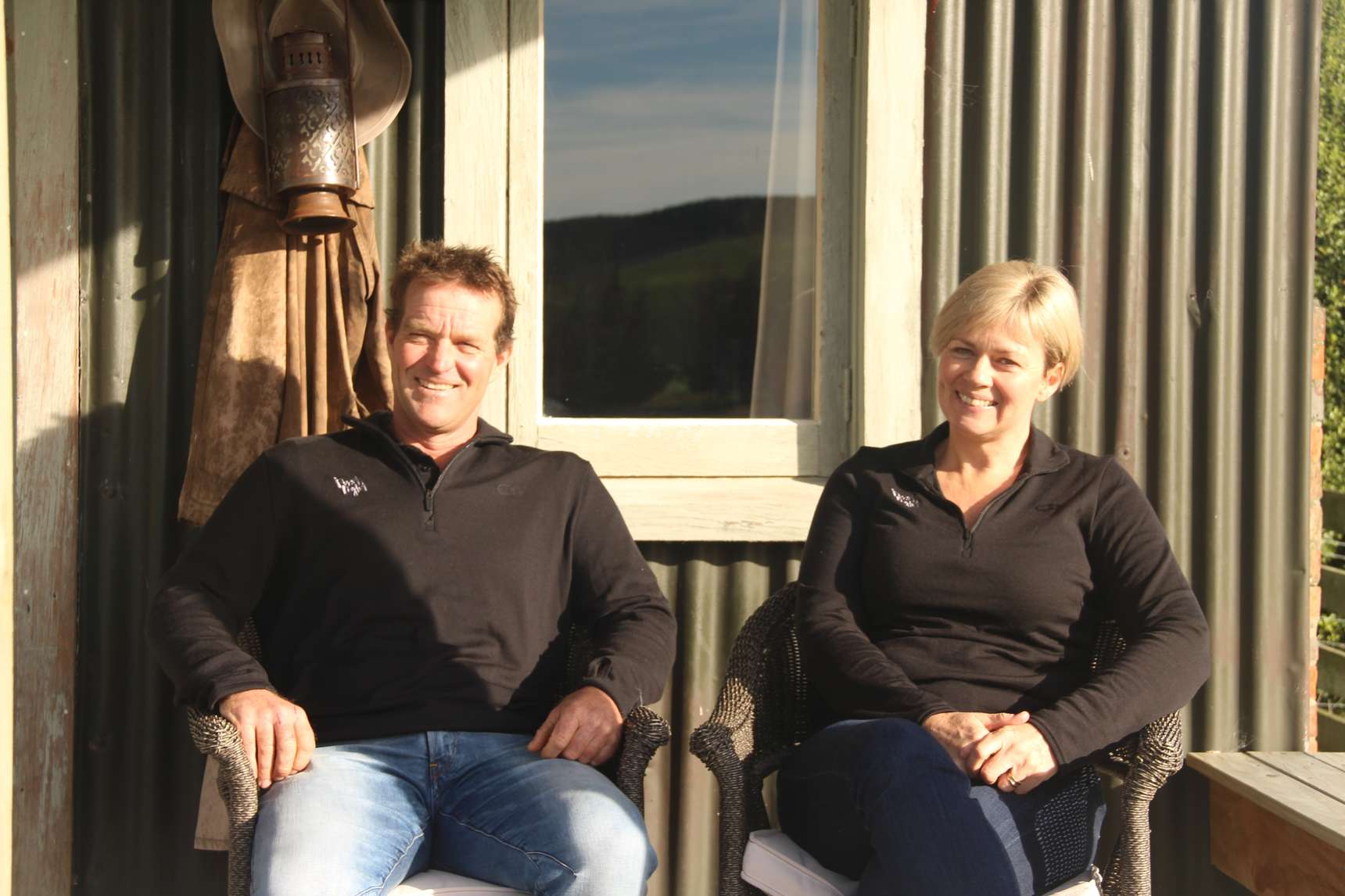
Consistency and simplicity are two things Southland farmers Mike and Kirsty Bodle love about being part of the First Light Wagyu programme.
Mike and Kirsty moved to Southland from Waikato in 2006 and now have a 450-cow dairy farm at Hokonui as well as breeding and rearing (to store) 350 First Light Wagyu cattle. On the dry stock side, they’d been looking for something to spread risk but they were also for something with X factor. First Light offered a guaranteed price contract 12 months out, giving them solid budgets on both sides of the business, Mike says.
“First Light also had the point of difference with the marbling, GM free and antibiotic free, and their markets.”
The Bodles aim to achieve growth rates of 0.7kg a day to store. Weaner calves are wintered in Hawea and then sold to a finisher at 20 months so the farm doesn’t have to carry them through a Southland winter. The couple has adopted a low intensity farming model, dropping the stocking rate to lessen their environmental footprint and improve production per animal.
“They’re happier animals and we have happier staff too with the right stocking rate,” Kirsty says.
The Bodles have recently returned from a trip to the United States with First Light Wagyu. Mike says the Americans are aware of the marbling, but find it has a much stronger flavour than the grain-fed beef they’re used to. “They were amazed the only seasoning we added was salt.”
Mike and Kirsty know they are custodians of their land and treat it accordingly. They’re also proud of it and love visitors coming to stay in their B&B cottage. “They love the green grass and walking up the lane and the stock coming up to them. If they can touch an animal, that’s amazing to them,” Kirsty says.
The couple have loved their time in Southland. They’ve had a long involvement with the Central Southland Swimming Club and also established the Southland Board Riders Club (surfing) in Riverton, where they have a crib for valuable time off farm.
Their two daughters have grown up working on the farm and are still an integral part of the family business.
“We wouldn’t have made it without the girls and that’s what family farming is all about.”
There are a few extras in the family now… a Jersey cow known as Poppie, a premature white-face cow known as Lucky and Miss Wagyu, #319, one of the original hand-reared Wagyu calves.
“She has a cheeky nature and walks around like she’s a supermodel,” Kirsty says, laughing.
“She’s our mascot now. She’ll never go.”
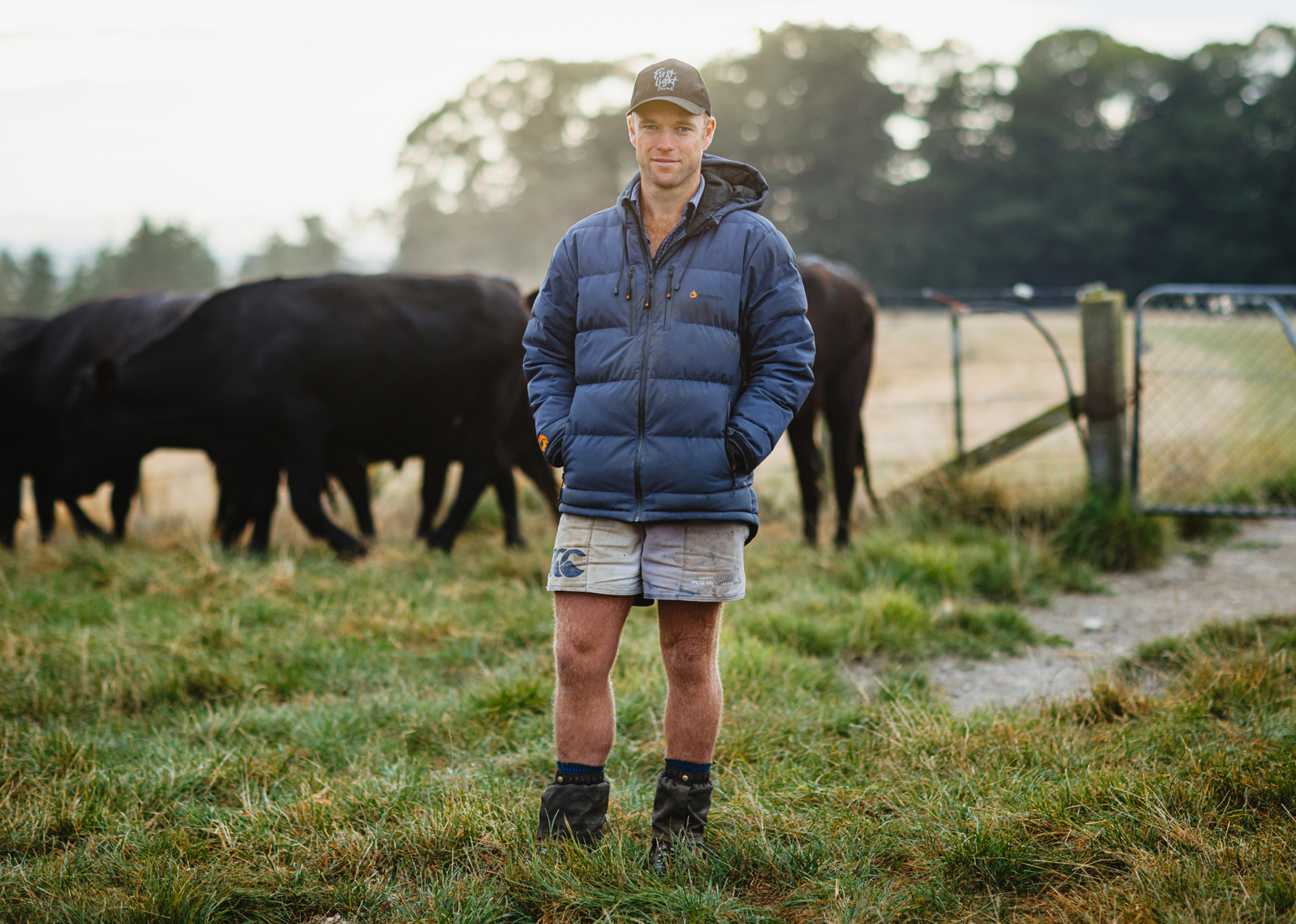
Forest Gate is a 340ha deer, sheep, cattle and cropping property which is being farmed in its 4th generation by our family. Duncan Holden purchased the property in 1934, with Peter Holden introducing deer during the late 80’s. Forest Gate is currently being farmed by Duncan & Wendy Holden in conjunction with their son and his wife, Tom Holden & Bex Cave.
Forest Gate is a finishing farm with all of our livestock brought in to finish. Our deer are breed on another Firstlight farm 15mins up the road. We are a majority grass based system , with all livestock being grass fed finished. We use brassica crops to help us get through the tighter periods.
We enjoy farming deer because there is still a lot to learn about them. It’s a young industry which is exciting as we are constantly learning new ways/techniques to achieve better outcomes for both us and the deer.
Its important to us that we farm Forest Gate in a way that won’t affect future generations from having the opportunity enjoy farming deer and they lifestyle that brings!
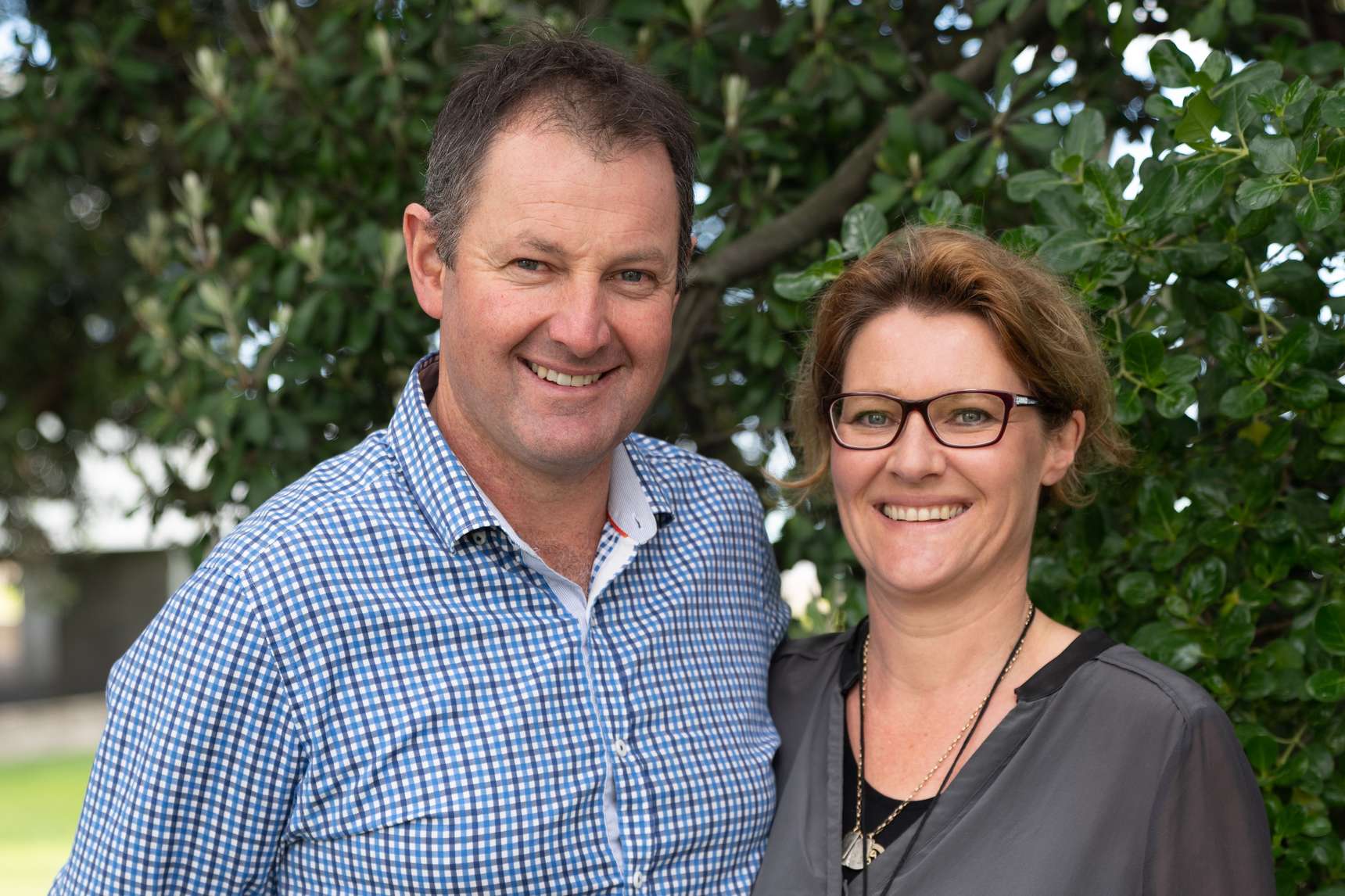
Peter and Joc Kinney have been farming at Culverden in North Canterbury for the past 20 years. Their four sons – Charlie, Sam, Alex and Max – are the fifth generation to live on Ballindalloch.
Twelve hundred cows are milked on the 326ha site, which has a 220ha dairy support block down the road. Adjacent to that is Beechwood, a 275ha beef farm running between 1300 and 1400 cattle, of which 35% are Wagyu. All the farms are under centre pivot irrigation with water supplied through the Amuri Irrigation Company, which acts as a collective and audits their on-farm environmental plans.
The Kinneys initially bought Beechwood to convert to dairy. But Peter says the climate was changing and they also wanted to diversify the farming operation. It has also ensured the ongoing involvement of the boys, two of whom are boarders in Christchurch with the younger two at the local area school.
“Having the boys involved is very important to us,” Joc says, “feeling that connection with the land and the stock and with what we do.”
In 2015, Peter and Joc bought some Wagyu weaners.
“We heard about them through word of mouth. We were looking at different beef options and Wagyu came out as an option that gave us a bit of diversity within the beef operation,” Peter says.
In the following years, they came to understand more about First Light as a company and its aspirations.
“We liked what First Light was all about – a leading company doing innovative things, controlling the process from the growing through to the sale.”
Joc says they also liked that it was New Zealand-owned and how it evolved.
“It has a good feel about it. It involves other farming families. Some are quite different to us but we’re all on the same page. It does actually feel like a family and I really like that,” she says.
“Plus it is front-footing and leading all those customer-driven aspects such as grass-fed, antibiotic free, non-GMO, Certified Humane and the whole animal welfare side. Rather than waiting for things to happen, First Light was taking a leading step in that regard.”
The dairy herd is the breeding platform to supply the beef animals for the beef unit, Peter says.
“We’re using sexed semen over our best dairy cows to generate our replacements which gives us the ability to use more beef semen over the rest of the herd cows. Wagyu fits in there strongly in that we mate our first-calving yearling heifers to Wagyu where otherwise they would probably be mated to Jersey and their calves bobbied. The Wagyus are easy calving and this captures value from those animals that would otherwise be lost.”
The Wagyu calves are mostly reared on Beechwood by the dairy team. They are grass fed on irrigated pasture and wintered on fodder beet, pasture and silage.
“We enjoy working with the Wagyu cattle – their temperament is very good and they are relaxing to work with. We enjoy the challenge of getting the best out of these cattle by striving to achieve high marble scores.”
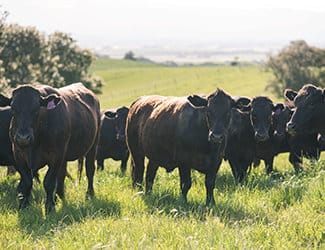
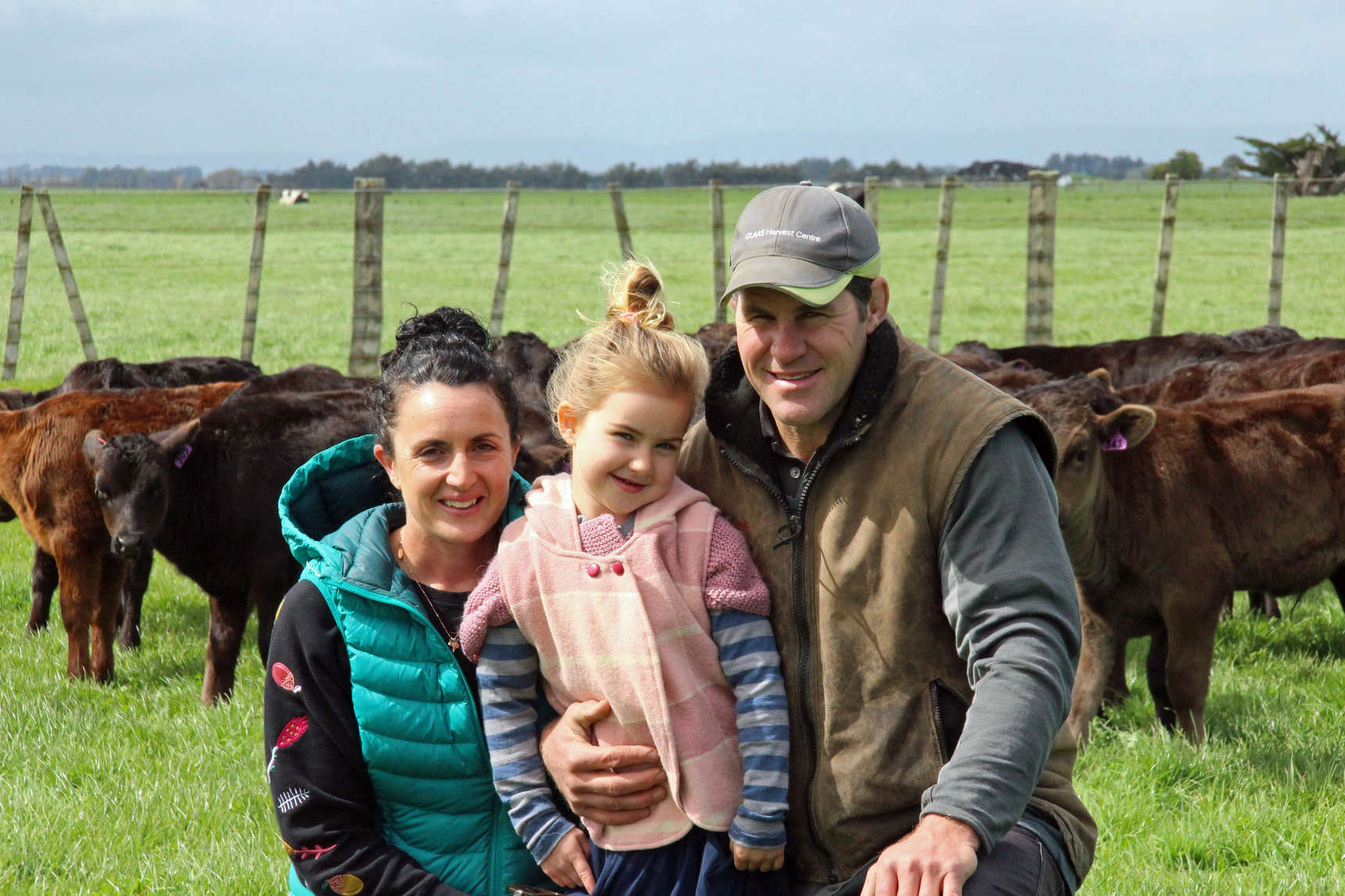
Grant and Kate Webb’s farm backs onto the beautiful Rangitikei River between Bulls and Sanson, about 20 minutes west of Feilding.
Their original farm is a 155ha (effective) beef property and in June 2017 they added a neighbouring 250ha dairy farm; this has a manager looking after 600 cows with autumn and spring calving.
The two properties are run under the same partnership, but Grant takes the dry stock and heifers onto the beef farm for grazing.
“We have a ‘grass factory’ of approximately 400ha and try to utilise every square metre of grass the best we can,” he says.
He has a mixed bag of beef options on the farm, which gives the Webbs diversity in both market and price, as well as added flexibility. There are two age groups of everything – 120 Friesian bulls, 120 Wagyu steers and heifers and about 80 white-face Herefords.
“The Herefords are our safety valve in case the season is tough or something else happens. We don’t want all our eggs in one basket so we’ve diversified to have both dairy and beef options.”
Under the First Light Wagyu system, the Webbs are breeder finishers.
“We live next to my parents’ runoff, which is 60ha, where I look after their 130 Friesian heifers. We put them all to a Wagyu bull and take that progeny and rear them on the beef block and take them through to finish.”
Kate helps with the calves where she can, but is busy with their three children – Leo, Cruz, and Emmi – and teaches part time.
Grant says it was talking to an old school friend, Scott Linklater, about Wagyu that first got him involved with First Light.
“He said they were a good beef animal and I was looking for options to stock the beef farm, as opposed to buying older stock. It was such a waste to put those Friesian heifers to a Jersey bull and just get bobby calves. I wanted greater sustainability, which we have; there is value in the calves and I get a steady supply of stock for the beef unit.”
The Webbs are a relatively closed operation.
“All progeny are taken from my parents’ dairy farm 10 minutes away, and reared through to finishing which allows us to eliminate bobby calves. We’re not as susceptible to the market. We know what we’re getting well in advance.”
Grant enjoys being part of the First Light family.
“Their Spring Muster is really well done. It’s a good confidence builder, getting people together talking about Wagyu, especially the newer ones like us talking to the farmers who have been involved for longer. It’s a great concept. Everyone seems to have buy-in and talks about how best to grow the Wagyu and what strategies we need to employ to add value and produce a high-end product.
“They’re always looking to do things better… and so are we. We are always trying to get more information and find out how other people are doing things. That’s one of the great things about being part of the First Light programme.”
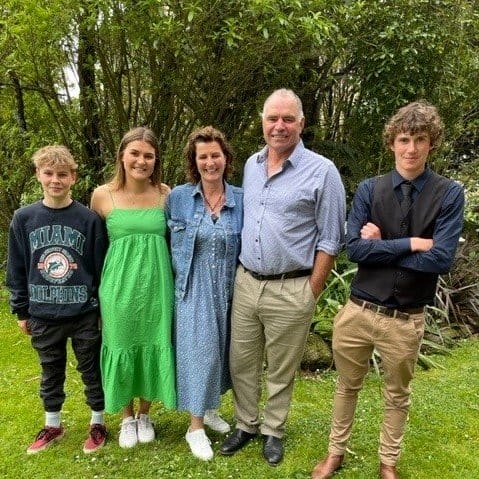
Westward Downs farm Wagyu heifers at their property at Te Uku – a beautiful property on the Raglan harbour. The Wagyu steers are run at their home property about an hour north near Ngaruawahia.
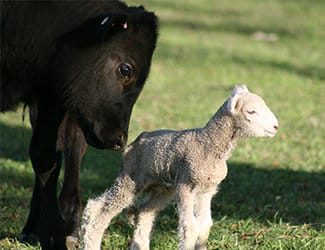
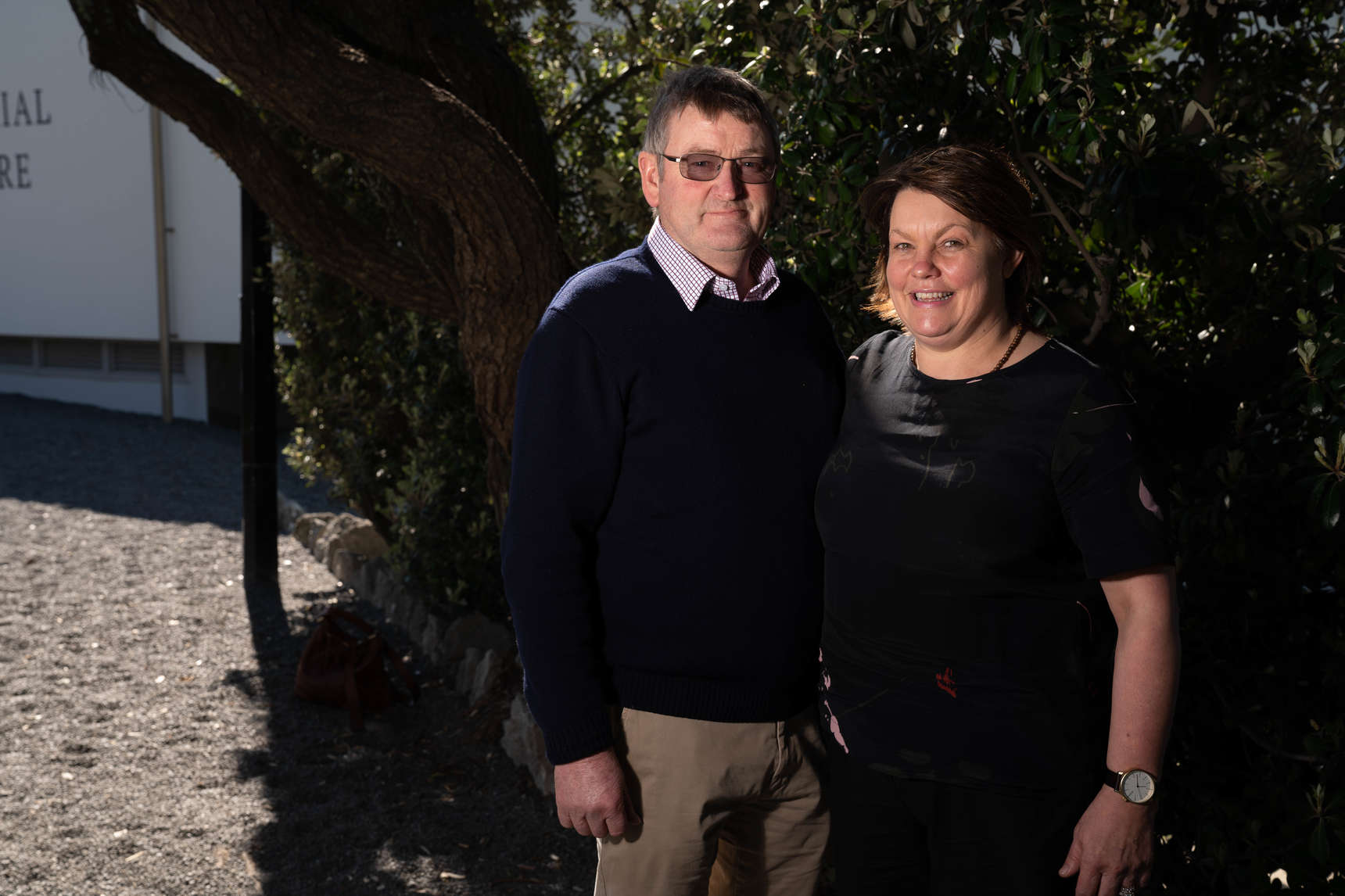
Gary and Tania Coker are two of our southernmost farmers, running a dairy grazing and beef finishing operation at Agland Farms near Dacre. Some of that beef is First Light Wagyu, which the Cokers – who have been farming for over 40 years – say has helped open their eyes to new possibilities. “It has broadened our opportunities in cattle finishing and risk profile, while being involved in a company actively marketing quality beef,” says Gary.
The Cokers farm across 620ha, and in their spare time enjoy a bit of boating. They also look forward to the annual trip north to Hawke’s Bay for the First Light AGM. “It has given us opportunities to meet other likeminded farmers.”
Provenance, animal welfare and sustainability play a big role in how the Cokers run their operation and they devote themselves to getting it right. “Those values are extremely important to us,” says Gary. “We farm with the future in mind. We’re not wanting to harm the environment so we manage our stock to both sustain our land and provide a premium product for the end user.”
Gary encourages anybody looking for a new opportunity to raise, farm or finish the best beef in the world to contact First Light. “Go visit a farmer who runs Wagyu cattle across the age groups to see how they would fit into your system,” he suggests.
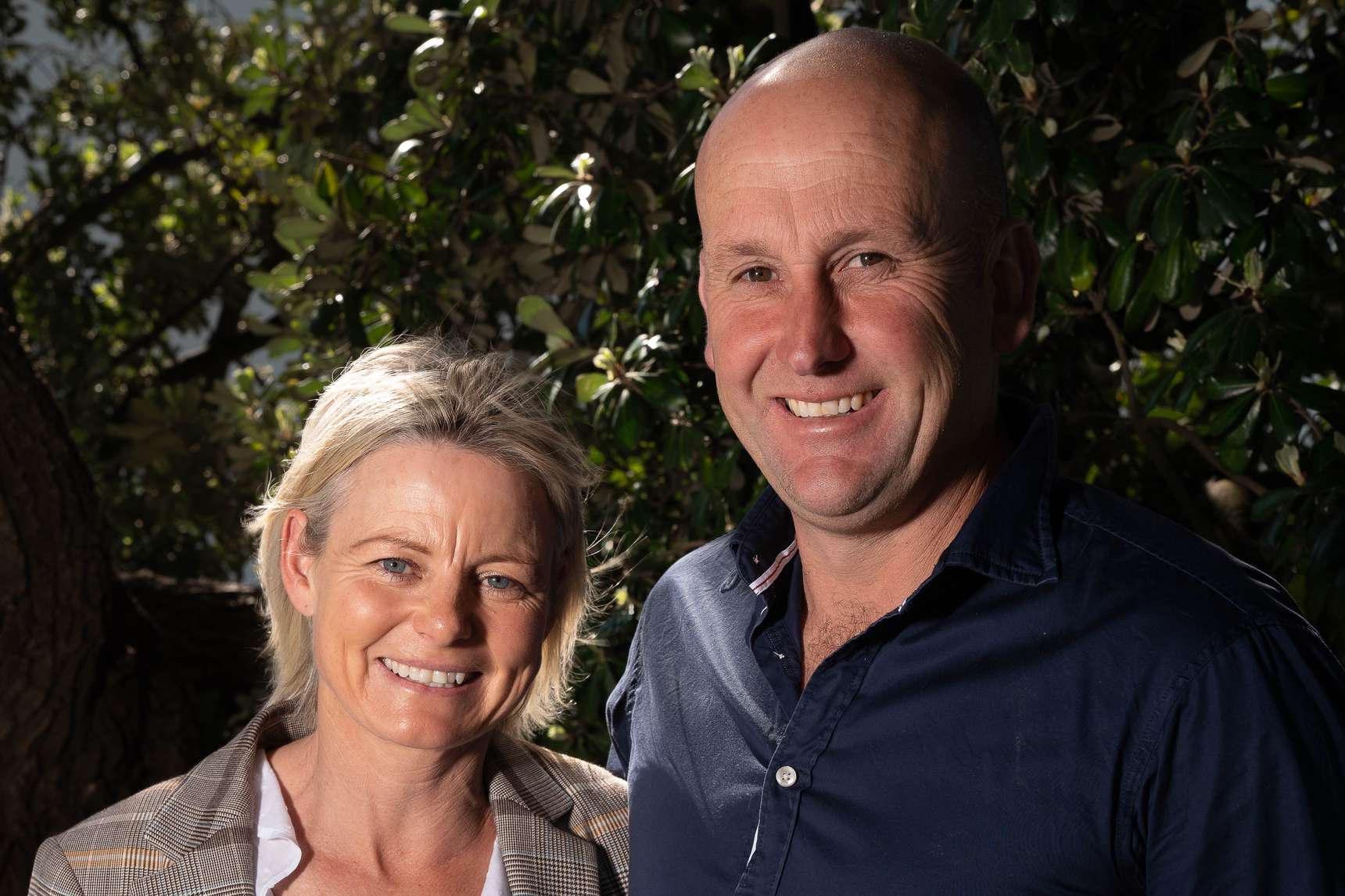
Mark and Wendy Smyth purchased Piripiri Station, located in the King Country, in April 2006. In 2014, they expanded their operation, buying a neighbouring farm and extending their land to 2400ha, (1820ha effective, including a coastal lease of 200ha effective).
The Smyths say they chose First Light after developing a keen interest in the progress of Wagyu cattle as opposed to traditional breeds. And Wendy, who holds a Bachelor of Consumer & Applied Science majoring in Japanese and food science, says she was hooked on the story. “Consumers are choosing not only a superior tasting meat with incredible nutritional attributes, but a happy grass-fed product that can be traced back to the grower,” she says. “The First Light team fronting the story has integrity, marketing innovation and is driven to produce a quality protein to top end consumers.”
Both Mark and Wendy are sports-mad, enjoying everything from rugby, cricket, hockey and tennis to horse-riding, and diving and fishing the clear waters near their home. Mark, who graduated Lincoln University with a Bachelor of Commerce (Agriculture) belongs to the farmer-led initiative King Country River Care. “We’re very proud of our provenance, our coastal influence, the native bush and healthy rivers surrounding us,” he says. “We endeavour to produce a healthy, happy sustainable product without compromising the growth of future generations going forward.
And that’s reflected in the animals they raise for First Light. “Our dedication to animal welfare is very important to us,” he continues. “It feels good to grow a nutritious product without human intervention – just pure grass as well as good animal health and stock management practices.”
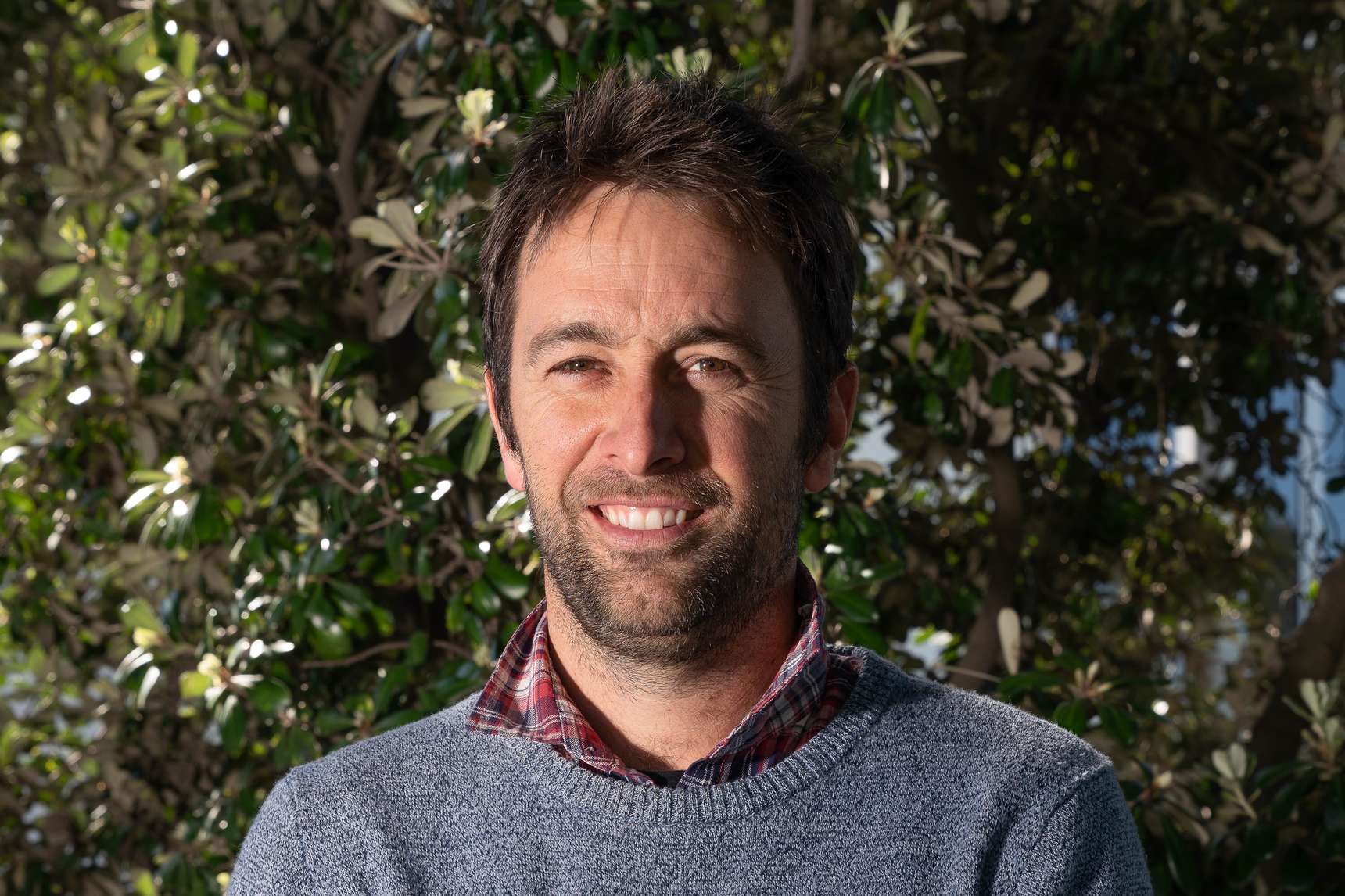
A glimpse of First Light Wagyu product in a San Francisco supermarket led to Wairarapa farmers Mark and Susannah Guscott joining the First Light family in 2016.
They were there with Atkins Ranch, which supplies New Zealand lamb to the premium US market; Mark’s father was a founding member and Mark is on the board of its farmer group.
“First Light were doing a cooking demo the same way Atkins Ranch do. I had heard of First Light but didn’t know much about Wagyu. Roll on a few years… we sold our first crop of calves as weaners and our second crop will go to processing later in 2020.”
Mark and Susannah have been sheep, beef and arable farmers on 800ha near Martinborough for 16 years. They have three children – Olivia, Annabelle, and Ben.
The farm, Glen Eden, has 180ha of cash cropping, lambs 1500 to 1800 ewes and trades about 10,000 lambs to Atkins Ranch each year. One hundred and thirty Angus beef cows are put to Wagyu bulls.
Mark says the First Light Wagyu was worth more money to the farm and he liked the fact the business was market driven. He says the animals themselves were different to what he was used to, but not too different.
“The growth rates are similar to Angus steers. Like with any change or doing something for the first time, you adjust your management. I was keen to have a go at carrying them through summer and into their second winter; they need to be prioritised and done well. We’ve made the adjustments and they’re going well. We don’t have huge numbers so they’re fed grass only, with some red clover baleage when needed.”
He says walking around the Wagyu in the yards and the paddocks has quietened them and they’re easily shifted and good to work with.
The farm has 20ha of native bush in a QEII National Trust covenant, 3ha of retired wetlands (with more on the plans) and tourism accommodation on a hill overlooking the farm.
Diversification appeals to the couple.
“It is more complex, but everything works together in a big jigsaw puzzle,” Mark says.
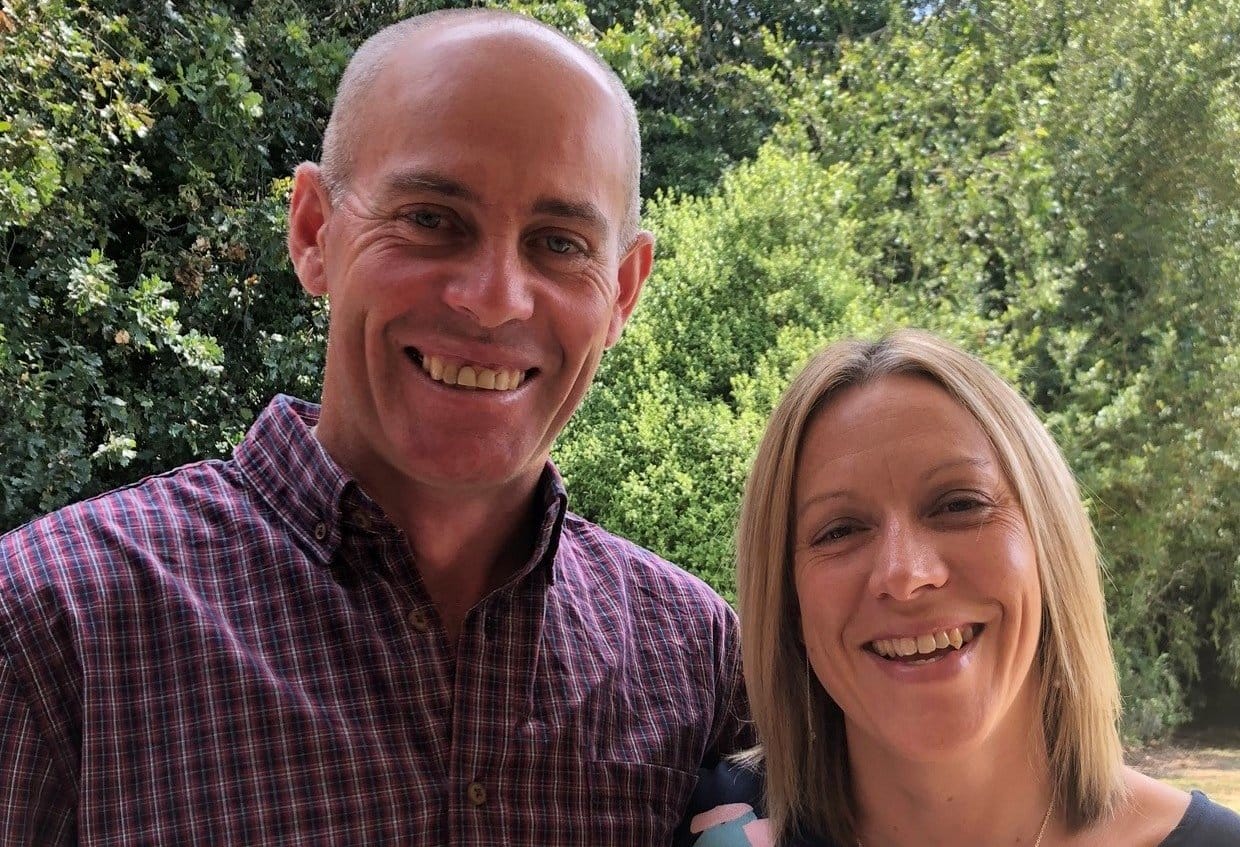
Quiet, easy-to-handle cattle and surety of price – top reasons why South Canterbury farmers Evan and Clare Chapman love their association with First Light.
In October 2019, the Chapmans marked a century of farming on the rolling downs of Rockburn, near Geraldine – a true milestone. It was also a chance to celebrate Evan and Clare taking full ownership of the 540ha property after farming in partnership with Evan’s parents, Angus and Liz, since 2003. Evan and Angus manage the farm day-to-day, and Clare does the books. Their three daughters, Olivia, Ella and Milly, are the fifth generation to live there.
Rockburn runs 2800 composite breeding ewes, finishes 100 bulls and takes 100 First Light Wagyu calves through to finishing.
“We had breeding cows here for a long time, but it was too hard to take them through the dry summers with calves at foot, so we went to trading steers and heifers, but we were at the mercy of the schedule and the store price,” says Evan. “We didn’t know what the purchase price was going to be and we didn’t know what the sale price was going to be. We pay a premium price for the Wagyu calves, which makes you flinch a bit, but it’s worth it at the other end when the price you get for them at 24-months is so much higher again.”
In winter, the R1s are fed fodder beet and silage and the R2s have fodder beet and meadow hay; pretty much what they were doing anyway, Evan says.
“At night I was fencing off the ring feeders so they had to eat more fodder beet if they were hungry.”
He says the animals are quiet and good to handle.
‘They’re placid, a lot easier than the bulls to handle and easy to work in the paddock and in the yards. Last year the kids were feeding them fodder beet through the fence. There are a few friendly ones you can give a good scratch on the head.”
Evan says the people are great to deal with as well.
“They have hub meetings that keep us informed of what’s going on in the company and any new initiatives coming through. They’re always doing more research to lift the marble score and sharing ideas from other farmers in the supply group to improve what we’re doing.”
Rockburn Farming picked up the prize for First Light Wagyu Finisher of the Year in 2019. Evan says he’s glad he “stumbled across” First Light when he did. “Wagyu cattle are great to work with. You have to be prepared to give them preferential treatment but the benefit of this is a contract with a premium price. We have found First Light a great company to supply to.”
